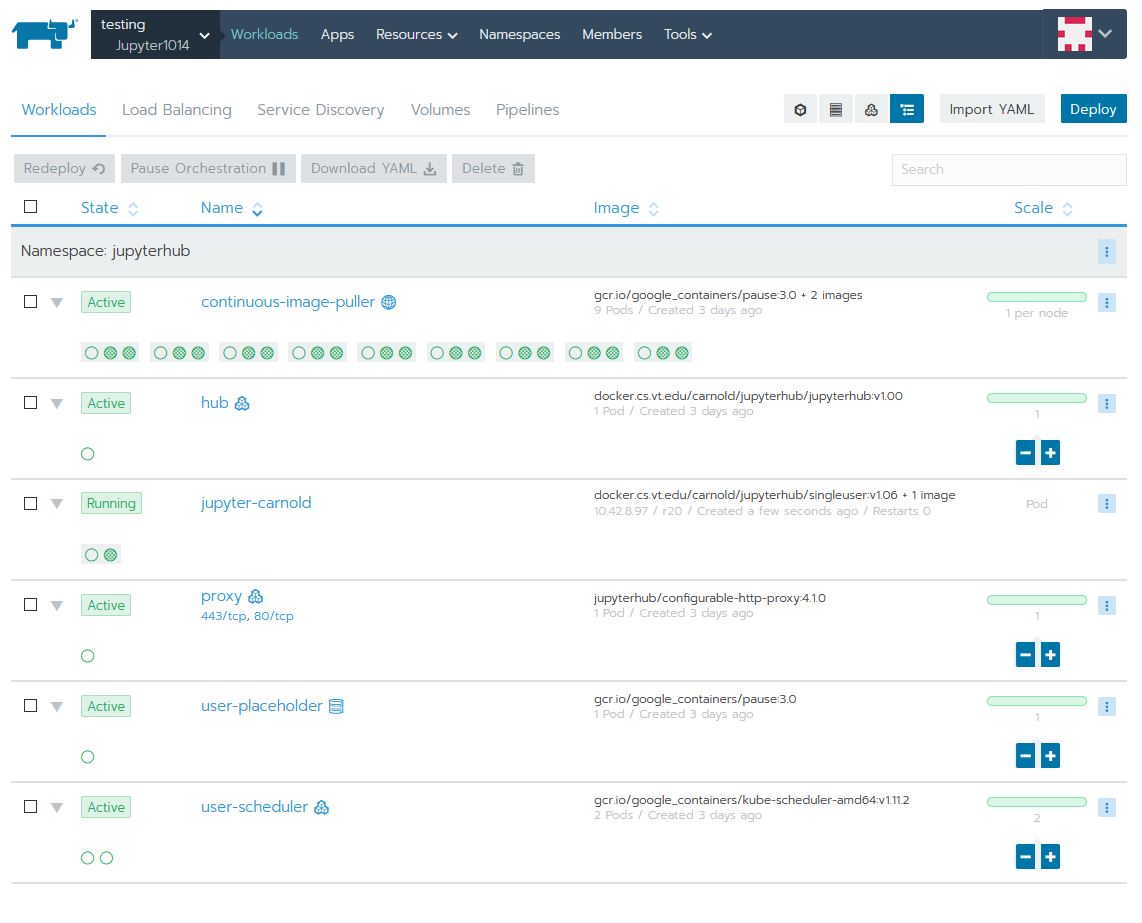Cloud Example Jupyter: Difference between revisions
No edit summary |
No edit summary |
||
| Line 5: | Line 5: | ||
=== Basics === | === Basics === | ||
Here is what the '''Workloads''' tab looks like: | Here is what the '''[https://rancher.com/docs/rancher/v2.x/en/k8s-in-rancher/workloads/ Workloads]''' tab looks like: | ||
[[File:Jupyter1.JPG]] | [[File:Jupyter1.JPG]] | ||
Details of each deployment: | '''Details of each ''deployment:''''' | ||
==== continuous-image-puller ==== | |||
This ''[https://rancher.com/docs/rancher/v2.x/en/k8s-in-rancher/workloads/deploy-workloads/ deployment]'': | |||
* Runs a copy of itself on all ''[https://kubernetes.io/docs/concepts/architecture/nodes/ physical nodes]'' of the cluster. This is called a ''daemon set'' by kubernetes. | |||
* The purpose of this ''deployment'' is to pull the single-user docker image ahead of time on each node, and automatically on any new nodes to the cluster. | |||
Revision as of 13:31, 16 August 2019
Work in progress
Introduction
The goal of this project is to support a class teaching basic programming using Jupyter Notebook Jupyter notebook is a single process that supports only one person. To support a whole class, a jupyter notebook process will need to be run for each student. Jupyter offers a Jupyter Hub that automatically spawns these singe user processes. However, a single machine can only support around 50-70 students before suffering performance issues. Kubernetes allows this process to scale out horizontally by spreading the single-user instances across physical nodes. I will give a break down of different pieces needed to make this work and go into more detail on certain aspects.
Basics
Here is what the Workloads tab looks like:
Details of each deployment:
continuous-image-puller
This deployment:
- Runs a copy of itself on all physical nodes of the cluster. This is called a daemon set by kubernetes.
- The purpose of this deployment is to pull the single-user docker image ahead of time on each node, and automatically on any new nodes to the cluster.
